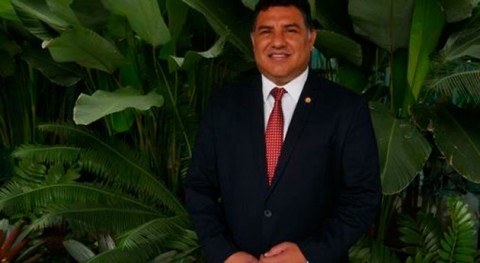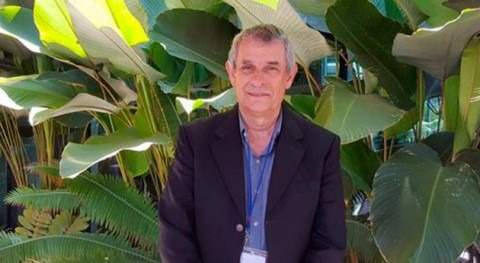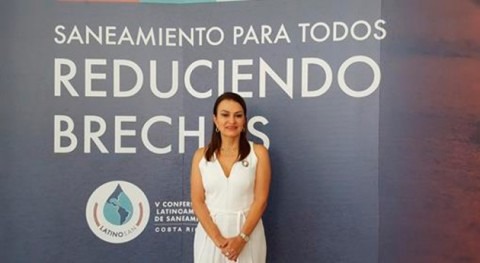The 5th Latin American Conference on Sanitation, Latinosan, was held in Costa Rica last April. The objective of the conference was to reflect upon the best strategies and practices to leave no one behind with regard to sanitation. We interview José Miguel Zeledón, Water Director of Costa Rica, to look into the challenges of sanitation and water in his country and the role of the Conference of Ibero-American Water Directors (CODIA).
Question: How was the preparation of the Latinosan conference?
Answer: My ministry did not organise it entirely by itself; other institutions were also involved, such as Costa Rica's Institute of Water Conveyance and Sewerage (AyA), who has been leading the work since three years ago. The objective of Costa Rica is to put on the table the issue of sanitation, because in our country there is an important gap in services.
Q: What is the gap?
A: There is a huge gap being addressed at the policy level, although resources are scarce. We have to tackle the problem and we are working on it; we have gone from having a 5% to a 15% of waste water undergoing treatment. And so we have set the goal of achieving a 40% of waste water undergoing treatment by 2022.
Q: How does your participation in the Conference of Ibero-American Water Directors (CODIA) help you?
A: The CODIA is essential. We talk a lot about water, but not so much about sanitation. In recent years we have been addressing sanitation as well, as it is a requirement under the 2030 Agenda, and in particular under Sustainable Development Goal 6, and it is a great opportunity. The CODIA is helping us, among other things, to improve water resource planning, so we are not just concerned about water quantity and quality, but we consider this together with sanitation. It provides a forum to exchange experiences and allows countries to make progress on their particular priorities.
The objective of Costa Rica is to put on the table the issue of sanitation
Q: Agenda 2030 promotes universal access to services, while also advancing quality; how does your country face these challenges?
A: Concerning water services, in our country a high per cent of people has good quality drinking water at home. In Costa Rica, 84% of the population drink tap water. The coverage of sanitation services is lower: only 15% of waste water undergoes treatment. Our approach involves different institutions, focusing on establishing legislation and roles in order to address sanitation in an integrated manner. We have an action plan until 2045 that seeks to consolidate efforts dealing with health, environment, and water and sanitation service providers.
Q: What are the challenges ahead?
A: In Costa Rica, the management of water and sanitation services for some 26% of the population has been transferred to communities. They handle water services well, but currently providing sanitation services is a big challenge, because of the high costs involved. Public institutions that have resources and access to loans are tackling this challenge, but communities cannot pay for the costs, so we have to consider collaboration between community water managers and public-private partnerships. We cannot leave the ASADAS — the community water management entities in Costa Rica — often comprised of users that participate on a voluntary basis, on their own to face this challenge.
Q: Costa Rica is a tourist destination; how to you deal with the challenge of providing sanitation services for tourists?
A: Our main source of foreign income is tourism, and often tourists come to coastal areas, where we have serious problems regarding access to water and sanitation due to competing resource uses, and where most communities are supplying their own water. We are setting as priorities those projects in areas with the largest number of tourists, such as Caribbean beaches, where three beaches have been selected as a priority. It is definitely a challenge, not only because of tourism, but because of competition. When you go to rural and coastal areas, the per cent of people that have access to water and sanitation is lower, and there is a lot of competition for the resource. Hotels are required to have waste water treatment systems by law, and water reuse for irrigation is a common practice.






